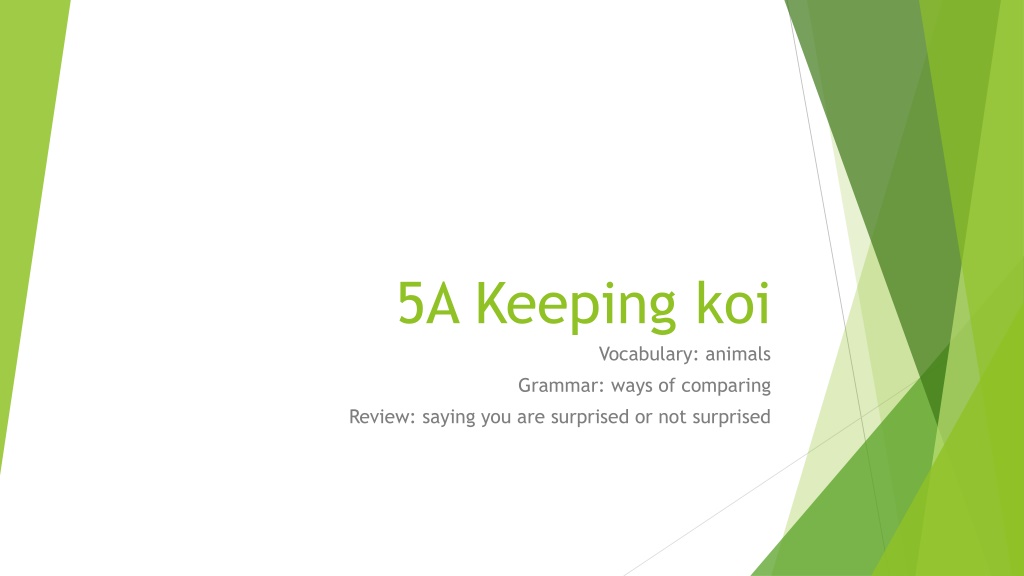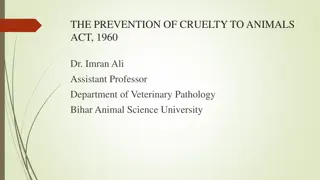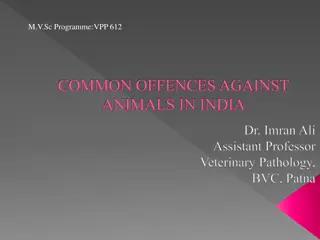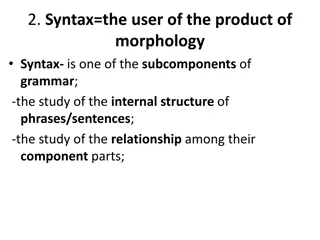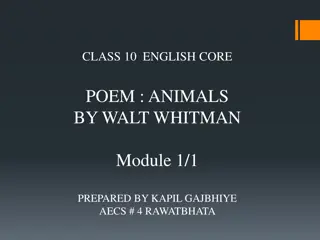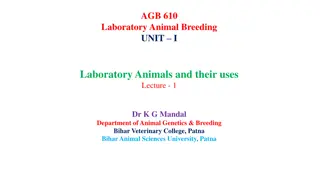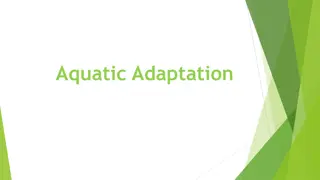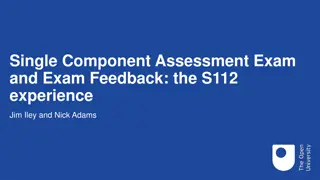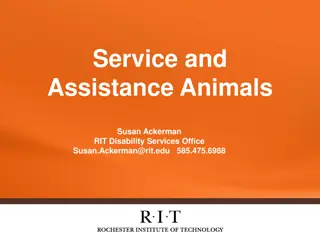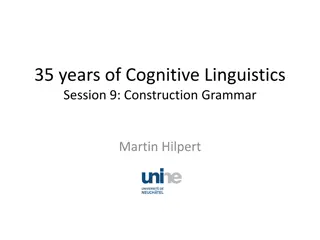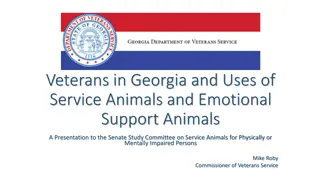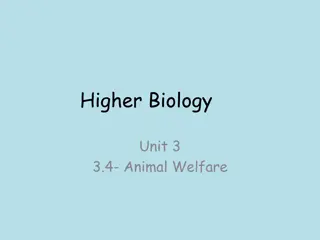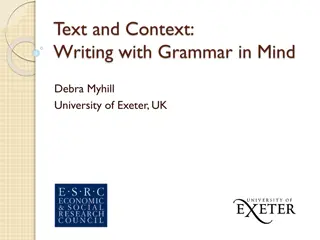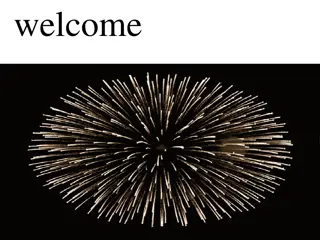Exploring Animals and Grammar in Module 5
Dive into Module 5 where you will explore vocabulary connected to the animal world, learn about keeping koi fish, delve into ways of comparing, and practice grammar exercises. Uncover new vocabulary related to animals, understand the unique nature of koi fish, and grasp the various ways of expressing comparisons. Engage with exercises related to animals, grammar, and comparative structures, all while enhancing your language skills. Stay curious, positive, and healthy as you progress through the module!
Download Presentation

Please find below an Image/Link to download the presentation.
The content on the website is provided AS IS for your information and personal use only. It may not be sold, licensed, or shared on other websites without obtaining consent from the author. Download presentation by click this link. If you encounter any issues during the download, it is possible that the publisher has removed the file from their server.
E N D
Presentation Transcript
5A Keeping koi Vocabulary: animals Grammar: ways of comparing Review: saying you are surprised or not surprised
Vocabulary In module 5 we are going to deal with Nature Happy Earth Day ( April 22nd) Animals
Here are some new vocabulary connected to animal world Let try to do exercise 1 b) together This animal . is a fish that can bite- shark. is a mammal that lives underwater-whale. is a bird with colorful feathers-parrot. is an insect with wings- bee, wasp, mosquito or butterfly. is a reptile that can poison you-snake. has stripes and a long tail-a tiger has spots and sharp claws- leopard. builds a nest to lay its legs in it-an eagle. has a fur and lives underground-rabbit. makes honey and can sting you-bee. makes a web out of silk-a spider is often kept as a pet- goldfish, parrot
Reading and grammar Keeping Koi koi (n)- a common carp of a large ornamental variety, originally bred in Japan. Try to answer the questions in exercise 2, then read the text on page 39. and try to answer the questions 1) Why are koi such unusual pets? 2) Did the writer buy any koi? Why/why not? What does the article say about numbers 89, 10 000, 250 000, 15 000, 75 and 5? Ways of comparing Comparation is the formation of the comparative and superlative forms of adjectives and adverbs. Here are some ways of expressing: Big difference Small difference No difference
Comparison and contrast are expressed by the use of thethe with comparative adjectives in parallel clauses. This structure is used to show proportionate increase or decrease. Structure: the + comparative adjective + clause + the + comparative adjective + clause The more adventurous it is, the more I like it. (NOT The more it is adventurous, the more I like it.) The less I see him the more I like him. The more he reads, the less he understands. The older we grow, the wiser we become. The higher you climb, the colder it gets. The richer one grows, the greater one s worries. The less you spend, the more you save. The sooner they go, the better it is. A short form of this structure is used in the expressions the more the merrier and the better . How do you like your coffee? The stronger the better. When should I start? The earlier the better.
Now, using tips and help with grammar, please try to do exercises 5, 6, 7 and 8. pp.38/39 as well as workbook pp. 25/26. If you have any questions connected to online material please contact me on my mail! Stay positive, stay curious - Stay healthy, Stay home!
